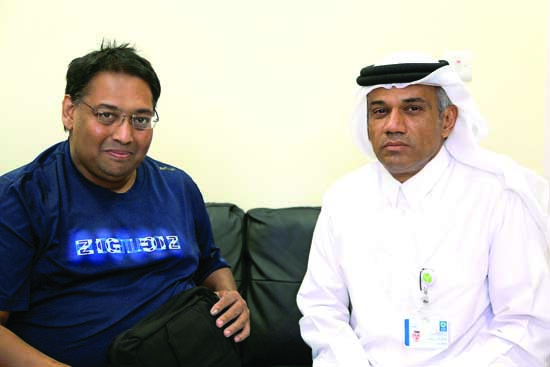

DOHA: Heart Hospital of Hamad Medical Corporation (HMC) is setting up a specialist Heart Failure team.
It will include a cardiologist, a surgeon and a physician who will be available 24 hours, to continue to provide the safest, most effective and most compassionate care to patients. The move comes as the hospital extends compassionate care and expertise services to patients.
Kiran Machado, a 39-year-old Indian expatriate is among those who have benefited from services. He wants the public to know that the team saved his life.
In 2014, he had a clue that something was wrong with him – he had backache, chest pain and a persistent cough. He sought medical advice at private clinics, and in India but there was no diagnosis forthcoming. He was also given medication that exacerbated his symptoms which resulted in a stay at the hospital for 10 days.
Last August, Machado collapsed at home and again while he was out with friends. They took him to the hospital’s Emergency Department.
When he arrived, the clinical team did the initial assessment and told him that his potassium levels were very low, and that they needed to admit him to the Intensive Care Unit (ICU). He was told he was experiencing heart failure – understandably a terrible shock.
“I was sure I was going to die. I was really very sick… It was then that I had a consultation with Dr Abdulaziz Al Khulaifi, Chair, Cardiothoracic Surgery at the hospital,” said Machado.
Dr Al Khulaifi knew Machado well and, after examining him, he knew that they needed to do an operation to save Machado’s life.
“Kiran was really very sick when I went to see him – he had acute cardio-myopathy and his heart had stopped three or four times - we needed to find a solution to save his life. The left ventricle assist device was the best option for him.
“The device is inserted in the heart and connected to a power and management pack that is external to the body, by a tube that exits through the stomach. The LVAD does 95 percent of the heart’s work, drawing blood from one chamber and pushing it into the aorta to supply the body with blood. The type of LVAD we use is designed to stay in the body for life – providing a long-term solution for patients.
“We also inserted an implantable cardioverter defibrillator (ICD) into Kiran’s chest to regulate the heart’s rhythm, working in partnership with the LVAD.”
Over the next few months, Machado will start his rehabilitation, once he has sufficiently recovered from the surgery, although he is confident about his progress so far. “Now I am feeling so much better... I’m comfortable and can manage everything myself,” he added.The Peninsula



